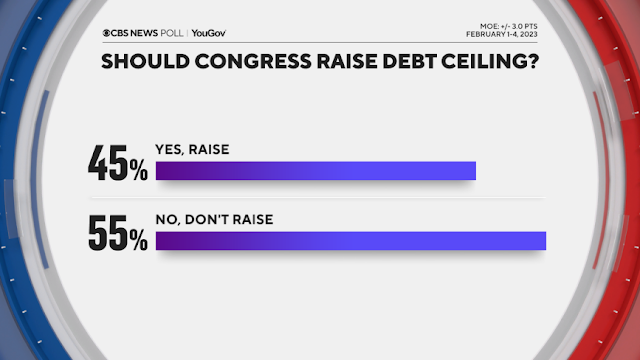Public Opinion on Debt and Default
Anthony Salvato and colleagues at CBS:
Views on raising the debt ceiling start off negative in principle, but if people are faced with the prospect of a U.S. default, a big majority would end up saying, "raise it."
Here's how that unfolds:
We first asked if the U.S. borrowing limit should be raised to pay current debts, and most say no, with Republicans and conservatives especially opposed. That suggests in part that the general idea of added borrowing is not popular.
But then we asked those opposed to raising the debt ceiling: what if that means the U.S. defaults?
In that case, the majority view on the debt ceiling moves in favor of raising it.
Republicans, Democrats and independents all shift substantially toward raising it when presented with the prospect of default. And shifts are most pronounced among those more worried about an economic downturn if the limit isn't raised.
So, it turns out defaulting is even more unpopular than borrowing.
And it's an important lesson both for politics — as we watch political leaders talk about the matter in the coming weeks — and for how we gauge public opinion on a complicated issue and its potential implications.


